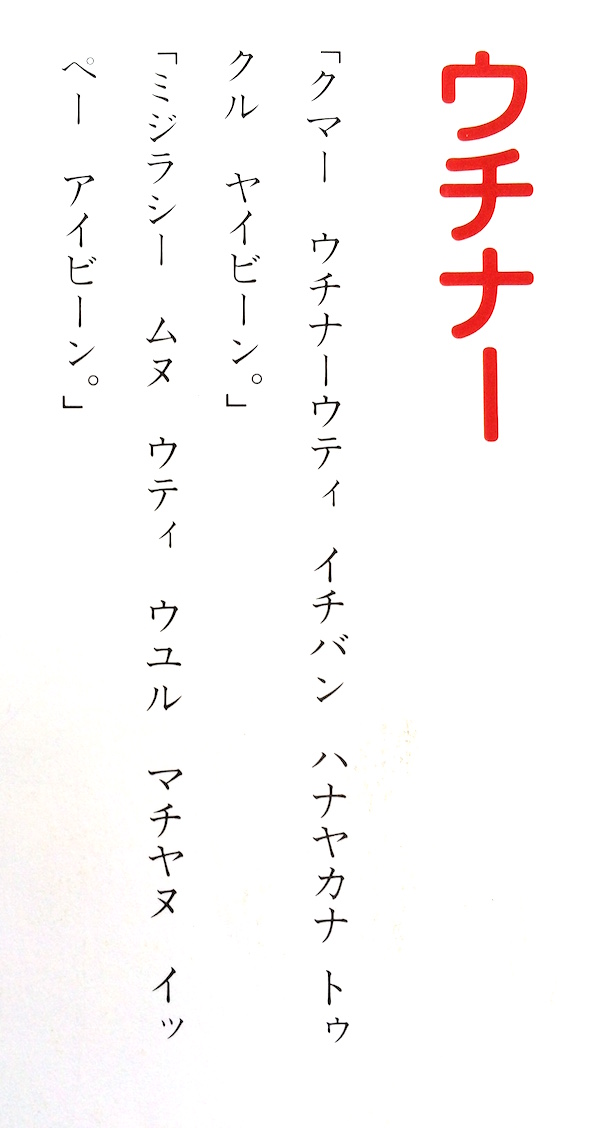The other day I went to our local public library looking for some children's books in English. Although I didn't find what I wanted, I did come across two series of books for young readers on Japan's various dialects. I picked up two volumes each on the Kyūshū and Okinawan dialects. Being the nerd that I am, I was actually quite excited about it and couldn't wait to dive into the books.
Quiz Time: What does the following mean?
"Kumā Uchinå uti ichiban hanayaka tukuru yaibin. Mijirashii munu uti uyuru machiyanu ippē aibin."
Translation:
ここは沖縄で一番華やかな所でございます。珍しい品物を売っている店がたくさんございます。
This is Okinawa's most thriving area. There are many shops selling unusual items.
Key:
クマー is ここは or "Here/This". Again, は (wa) loses the "w" and is pronounced "a".
ウチナー is merely the local pronunciation of 沖縄 (Okinawa), where "o" sounds like "u", "ki" sounds like "chi" and "wa" loses the "w", becoming "a"
お き な わ → ウ チ ナ ア
o ki na wa → u chi na a
ウティ (uti/uchi) means で or "in/at"
沖縄で → ウチナーウティ
トウクル (tukuru) is again the local pronunciation of 所 (tokoro), where "o" becomes "u".
ヤイビーン (yaibin) is the formal copula following a consonant. I need to look more into this later.
ミジラシー ムヌ (mijirashii munu) is the Okinawan pronunciation of 珍しい物 (mezurashii mono, "unusual things")
ウゆる (uyuru) is 売る, with an added syllable "yu" added to the middle, similar I guess to the way people in Fukuoka add y to some words such as koyui (濃い, deep, heavy) which is pronounced koi in most other areas.
マチヤヌ (machiyanu), I think comes from 町家 (machiya, town house with store fronts)
イッペー (ippē) means いっぱい (ippai, a lot/many)
アイビーン (aibin) is the copula that follows a vowel.
Note: dialects in Okinawa Prefecture can vary greatly from island group to island group. Words that may be used in Naha might not be used in, say, the Yaejima archipelago, i.e. Ishigaki-jima.


